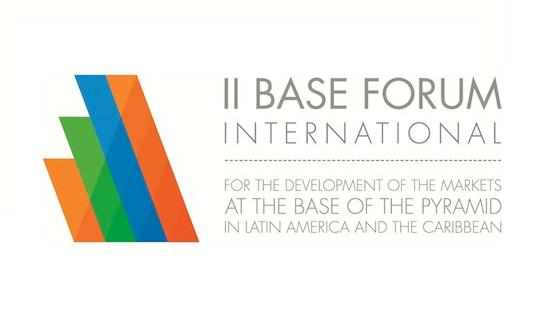There was a strong business voice in Medellin, with several executive-level representatives of members companies of the World Business Council for Sustainable Development (WBCSD) speaking about their work targeting the base of the pyramid (BOP): CEMEX, Coca-Cola, DuPont, Empresas Publicas de Medellin, Masisa (represented by Roberto Salas, CEO and chair of the WBCSD’s work in inclusive business), Natura, Nestlé, PepsiCo, and SABMiller.
From the WBCSD’s side, Marcel Engel, Managing Director of our Social Capital Focus Area, was a panelist at an executive-level breakfast, alongside most notably Stuart L. Hart, Professor of Management at Cornell University's Johnson School of Management. Prof. Hart, with the late C.K. Prahalad, wrote the path breaking 2002 article “The Fortune at the Bottom of the Pyramid”, which provided the first articulation of how business could profitably serve the BOP.
For my part, I moderated a panel on “Using value chains as instruments for social inclusion”, gathering Manuel Andrés (President of Nestlé Colombia and Ecuador), Jorge Rubio (Director, Citi Microfinance), Susanne Dorasil (Head of Division for Economic Policy and Financial Sector at the German Federal Ministry for Economic Cooperation and Development), and Alejandro Eder (Director of the Colombian Agency for Reconciliation). The panelists underlined their activities positioning inclusive business as an opportunity for business innovation and societal (re)integration.
Key topics covered during the event
Overall, key topics that were covered during the Medellin conference included:
- Corporate strategies for serving the BOP;
- The challenges of financing business models targeting the BOP;
- Supporting the role of intrapreneurs within corporations;
- Technologies as engines of social transformation;
- Leveraging distribution platforms for greater business impact at the BOP;
- Using value chains as instruments for social inclusion
- Sectorial challenges around enabling access to education, affordable housing, health care and information and communication technology;
- Risk analysis tools for inclusive business projects;
- Regulatory frameworks to enable financial inclusion
- Catalyzing public-private partnerships to accelerate commercial scale-up.
Overall, the forum further strengthened the basis for IDB to serve as a regional platform for dialogue and know-how on the road toward creating an industry ecosystem on innovative, market-based solutions to development challenges. It was an ideal occasion for the WBCSD, its members, and Regional Network allies (special shout out to WBCSD partners from Colombia, Argentina, Peru, and Nicaragua, all of whom were present in Medellin) to interact with an influential audience on lessons learned and solutions toward ever greater scale in this space.
IDB Opportunities for the Majority Initiative
The IDB’s Opportunities for the Majority Initiative (OMJ) team, with whom the WBCSD enjoys a very good working relationship since the early days of its inception in 2007, led the organization of the forum. OMJ promotes and finances ventures inclusive business models that bring together companies, local governments, and communities in developing and supplying quality products and services to people at the base of the socio-economic pyramid in the region. OMJ has so far funded some 45 projects totaling $250 million (a.o. with a number of WBCSD members), which leveraged an additional $1 billion in investments. In terms of total impact, this amounts to some 41,000 jobs generated, extension of credit to more than 220,000 microentrepreneurs, and provision of additional income for about 1.5 million people in rural areas.


